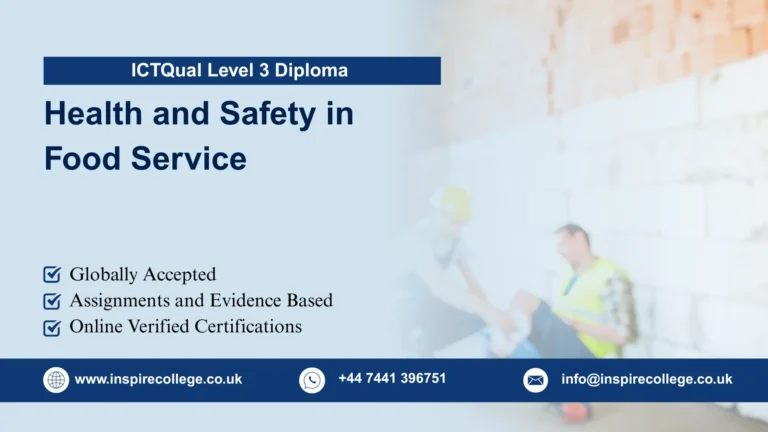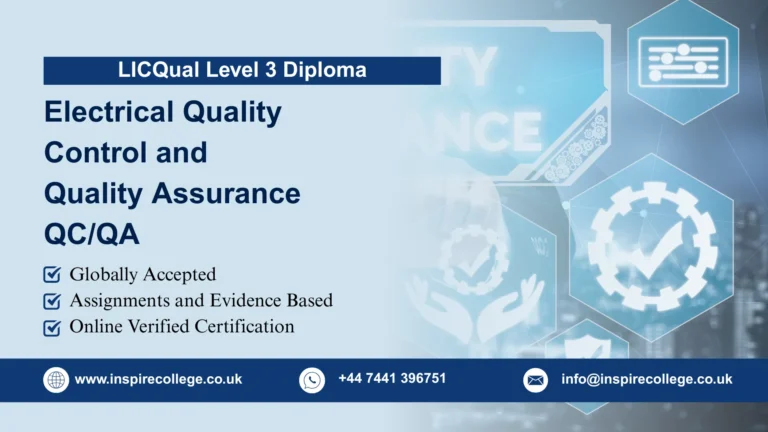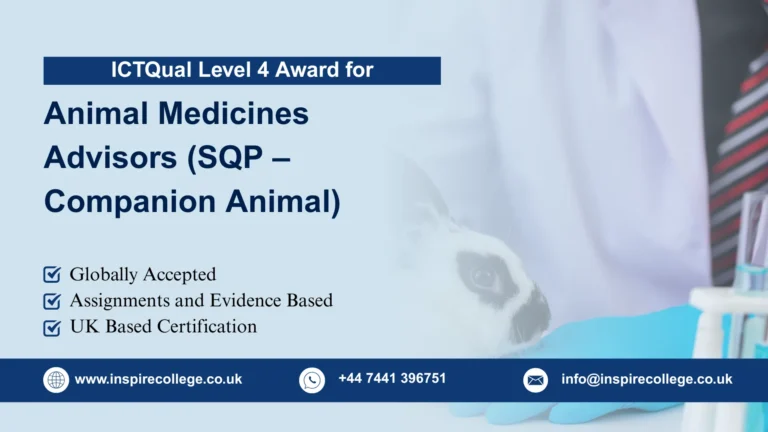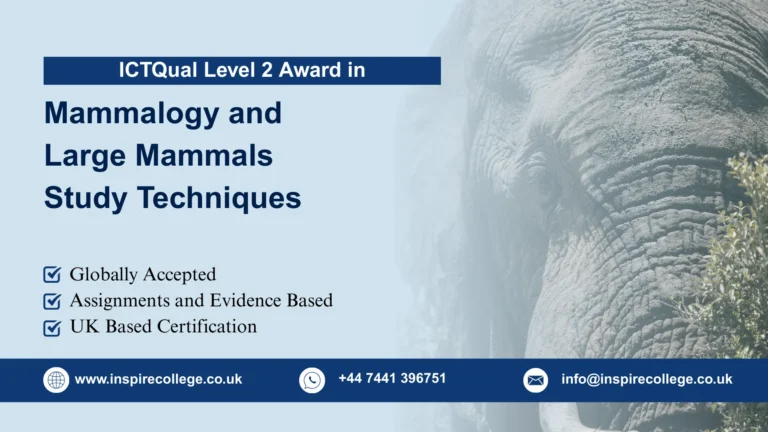
ICTQual AB Level 3 Diploma in Central Sterile Supply Department (CSSD)
The ICTQual AB Level 3 Diploma in Central Sterile Supply Department (CSSD) is a comprehensive program designed to equip healthcare professionals with the essential knowledge and practical skills required to excel in sterile services management. In today’s healthcare environment, the effective sterilization, handling, and management of medical instruments are critical to patient safety, infection prevention, and the overall efficiency of healthcare facilities. ICTQual AB Level 3 Diploma in Central Sterile Supply Department (CSSD) addresses these demands, offering learners a robust foundation in CSSD operations.
ICTQual AB Level 3 Diploma in Central Sterile Supply Department (CSSD) program covers the full scope of central sterile supply processes, including decontamination, sterilization, storage, and distribution of medical instruments and surgical equipment. Learners will gain in-depth understanding of industry-standard protocols, regulatory compliance, infection control guidelines, and quality assurance practices. The course emphasizes hands-on skills and real-world applications, enabling participants to confidently manage CSSD workflows, maintain sterile environments, and contribute to high standards of patient care.
By completing this ICTQual AB Level 3 Diploma in Central Sterile Supply Department (CSSD), learners will develop practical competencies in instrument preparation, sterilization techniques, and equipment maintenance, alongside critical analytical skills for managing operational challenges in healthcare settings. ICTQual AB Level 3 Diploma in Central Sterile Supply Department (CSSD) is ideal for current or aspiring CSSD technicians, healthcare support staff, and professionals seeking to advance their career in hospital sterile services.
With a focus on central sterile supply management, infection control, sterilization techniques, and healthcare compliance, ICTQual AB Level 3 Diploma in Central Sterile Supply Department (CSSD) prepares learners to meet the rigorous demands of modern healthcare facilities. Enroll in the ICTQual AB Level 3 Diploma in CSSD to enhance your professional skills, improve patient safety outcomes, and position yourself as a competent and highly valued member of the healthcare workforce.
To enrol in the ICTQual AB Level 3 Diploma in CSSD, learners must meet specific entry criteria designed to ensure readiness for both the academic and practical demands of the course. The requirements are as follows:
- Minimum Age:
- Applicants must be at least 18 years old at the time of enrolment.
- This ensures learners possess the maturity, responsibility, and professionalism required to operate effectively within healthcare environments.
- The age requirement aligns with the ethical and safety expectations of hospital and clinical settings, where adherence to strict protocols is essential.
- Educational Background:
- Learners should have a foundational level of education that demonstrates basic literacy and numeracy skills.
- Competence in reading, writing, and interpreting healthcare documentation is essential for understanding sterilisation processes, following operational procedures, and completing written assessments accurately.
- Adequate educational skills are necessary to navigate both theoretical concepts and practical tasks in CSSD, including equipment handling, infection control, and compliance with hygiene standards.
- Work Experience (Preferred but Not Mandatory):
- Previous experience in healthcare, hospital settings, or sterile services is advantageous but not required.
- The course is suitable for newcomers seeking to begin a career in central sterile supply as well as for current healthcare staff aiming to formalise, enhance, and expand their knowledge of CSSD operations.
- Experience in clinical or hospital environments can provide learners with practical context, but the programme is designed to equip all learners with the necessary competencies from the ground up.
- Professional Readiness:
- Candidates must demonstrate a commitment to maintaining high standards of hygiene, safety, and patient care.
- Learners should be prepared to follow detailed protocols, adhere to regulatory standards, and contribute responsibly to the safe and efficient functioning of a sterile supply department.
By meeting these entry requirements, learners will be fully prepared to undertake the ICTQual AB Level 3 Diploma in CSSD. They will gain a comprehensive understanding of sterilisation practices, operational procedures, and infection control, combining theoretical knowledge with hands-on practical skills. This foundation ensures that graduates can confidently contribute to the smooth and safe operation of healthcare sterile supply departments.
Mandatory Units
ICTQual AB Level 3 Diploma in Central Sterile Supply Department (CSSD), the ICTQual AB Level 3 Diploma in Central Sterile Supply Department (CSSD), consists of 6 mandatory units.
- Introduction to Central Sterile Supply Services
- Microbiology and Infection Control
- Cleaning and Decontamination of Medical Instruments
- Inspection, Assembly, and Packaging of Medical Devices
- Sterilization Techniques and Processes
- Storage, Transport, and Distribution of Sterile Supplies Auditing
Introduction to Central Sterile Supply Services
- Understand the vital role and significance of the Central Sterile Supply Department (CSSD) within healthcare settings.
- Identify the key responsibilities, workflows, and operational processes within a sterile services environment.
- Recognise the importance of adhering to healthcare regulations, protocols, and professional standards.
- Comprehend the structure, functions, and coordination between CSSD and clinical departments to ensure efficient patient care.
2. Microbiology and Infection Control
- Understand fundamental principles of microbiology relevant to CSSD operations.
- Identify common microorganisms associated with healthcare-associated infections (HAIs).
- Explain modes of transmission and how infections can spread in clinical environments.
- Apply effective infection prevention and control measures during cleaning, handling, and processing of instruments.
3. Cleaning and Decontamination of Medical Instruments
- Understand the distinctions between cleaning, disinfection, and sterilisation processes.
- Demonstrate knowledge of manual and automated cleaning techniques for various instruments.
- Select appropriate detergents and disinfectants based on instrument type and material.
- Follow safe and effective decontamination procedures to minimise the risk of infection.
4. Inspection, Assembly, and Packaging of Medical Devices
- Conduct thorough visual inspections to ensure instruments are clean, intact, and fully functional.
- Understand procedures for assembling surgical sets and other medical devices correctly.
- Demonstrate proper packaging techniques to maintain sterility prior to sterilisation.
- Recognise the importance of accurate labelling, wrapping integrity, and traceability in CSSD workflows.
5. Sterilisation Techniques and Processes
- Identify and understand various sterilisation methods used in healthcare facilities.
- Determine the appropriate sterilisation technique for different types of instruments and devices.
- Explain validation, monitoring, and documentation procedures for sterilisation cycles.
- Ensure compliance with safety protocols, regulatory standards, and quality assurance requirements during sterilisation.
6. Storage, Transport, and Distribution of Sterile Supplies
- Understand best practices for storing sterilised instruments to maintain sterility.
- Follow correct procedures for the safe transport and distribution of sterile items within healthcare facilities.
- Identify environmental and handling factors that may compromise sterility.
- Maintain accurate records and documentation for inventory management and traceability.
These learning outcomes ensure that learners acquire a balanced combination of theoretical knowledge and practical skills, enabling them to operate efficiently in CSSD environments, maintain high standards of patient safety, and contribute to effective infection prevention practices.
The ICTQual AB Level 3 Diploma in Central Sterile Supply Department (CSSD) is designed for individuals who are committed to building a professional career in sterile services and infection control within healthcare settings. The ideal learners for this course include:
- Aspiring CSSD Technicians: Individuals seeking to enter the field of sterile services and gain formal qualifications in the management, sterilisation, and handling of medical instruments.
- Healthcare Support Staff: Hospital or clinic staff involved in instrument processing, patient care, or support services who wish to enhance their technical knowledge and practical skills in CSSD operations.
- Infection Control Assistants: Professionals aiming to strengthen their understanding of microbiology, infection prevention, and sterilisation techniques to contribute effectively to patient safety.
- Career Advancers in Healthcare: Existing healthcare professionals looking to formalise and expand their expertise in central sterile supply management to progress in their careers.
- Individuals Seeking Accredited Training in Sterile Services: Learners who value internationally recognised certification in CSSD, sterilisation procedures, and safe instrument handling practices.
ICTQual AB Level 3 Diploma in Central Sterile Supply Department (CSSD) is particularly suitable for learners who demonstrate attention to detail, a commitment to maintaining high standards of hygiene and patient safety, and an interest in working within hospital sterile services. By enrolling in ICTQual AB Level 3 Diploma in Central Sterile Supply Department (CSSD), learners will develop both theoretical knowledge and practical competence, positioning themselves as highly capable and valuable members of the healthcare workforce.
Successfully completing the ICTQual AB Level 3 Diploma in CSSD provides learners with a robust foundation for professional growth, equipping them with both theoretical knowledge and practical expertise essential for a career in healthcare sterile services. This qualification is particularly suited for individuals aiming to build long-term, sustainable careers in hospital support, clinical services, or healthcare logistics.
Key Benefits and Skills Acquired:
- Comprehensive understanding of infection control principles and their practical application within sterile services departments.
- Mastery of decontamination procedures, ensuring all medical instruments and equipment are safe for patient use.
- Proficiency in sterilisation techniques, including the safe handling, monitoring, and validation of sterilisation equipment.
- Competence in medical device handling, storage, and preparation in line with healthcare regulations and quality standards.
- Enhanced awareness of compliance, safety protocols, and operational efficiency, enabling learners to contribute effectively to the smooth running of CSSD units.
- Preparation for hands-on roles within hospitals, clinics, and other healthcare facilities requiring sterile services expertise.
Career Progression Opportunities:
Completing this diploma opens multiple avenues for career advancement, including supervisory, managerial, and specialised roles in healthcare environments. Learners can pursue:
- Advanced Diplomas (Level 4 or 5) in Healthcare Management or Sterile Services Supervision, focusing on leadership, operational oversight, and team management.
- Specialised training in Infection Prevention and Control, enabling experts to lead initiatives that minimise hospital-acquired infections and maintain compliance with hygiene regulations.
- Professional courses in Quality Assurance and Validation, focusing on maintaining consistent sterilisation standards and regulatory compliance within CSSD operations.
- Advanced training in Medical Device Reprocessing and Sterilisation Technology, equipping learners with cutting-edge skills in the handling of complex equipment.
- Eligibility for key roles such as Sterile Services Supervisor, Instrument Technician, CSSD Manager, or Sterile Services Coordinator.
- Enhanced skills in healthcare logistics, including inventory management, equipment tracking systems, and operational workflow optimisation.
- Opportunities to progress into Clinical Support Services or Theatre Support Work, broadening expertise in patient care environments and operational support.
- Pathways into Hospital Operations or Patient Safety Leadership, preparing learners for senior management roles with strategic responsibility for healthcare services.
Impact on Professional Growth:
- Equips learners to make a meaningful contribution to patient safety and healthcare quality through effective sterile services management.
- Provides the foundation to take on greater responsibilities, including supervising staff, managing workflow, and ensuring compliance with national and international healthcare standards.
- Prepares learners for continuous professional development, enabling lifelong career growth within healthcare support services.
By completing the ICTQual AB Level 3 Diploma in CSSD, learners are not only ready to perform essential operational tasks but also empowered to progress into leadership, specialised, and strategic roles within healthcare sterile services, contributing to safe, efficient, and compliant patient care environments.
Register Now
FAQs for ICTQual AB Level 3 Diploma in Central Sterile Supply Department (CSSD)






